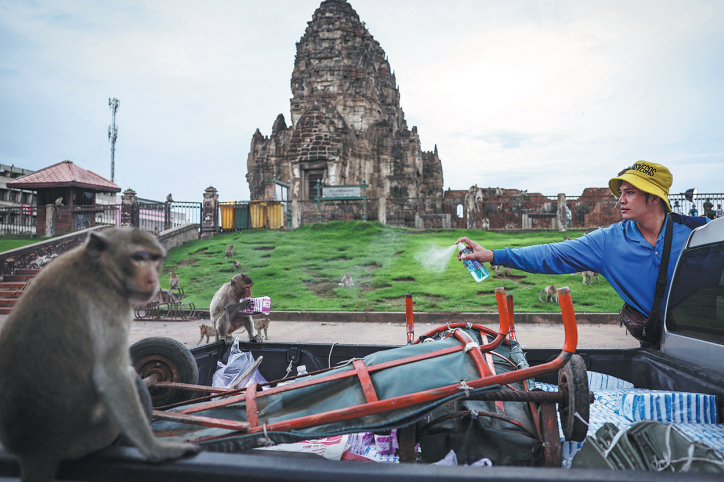Abe's gift to shrine 'strongly opposed'

Beijing voiced its strong opposition on Friday after Japanese Prime Minister Shinzo Abe sent a ritual offering to the infamous Yasukuni Shrine and a number of Japanese politicians also visited the shrine.
Abe sent a masakaki ceremonial tree to the spring festival of the shrine honoring Japanese war dead, including 14 Class-A war criminals. About 90 Japanese lawmakers visited the shrine on Friday, and Seiichi Eto, an aide to the prime minister also went, Xinhua reported.
Pointing out that the shrine honors "World War II Class-A war criminals who bore direct responsibility for the war of aggression", Foreign Ministry spokesman Lu Kang said China has been "consistently and resolutely opposed to such wrong behavior by the senior Japanese politicians".
Lu urged Japan to observe the four political documents it signed with China between 1972 and 2008 and to effectively implement the four-point principled agreement on bilateral ties reached in 2014.
He also urged Japan to "look its history of aggression in the face and deeply reflect upon it, make a clean break with militarism and take concrete actions to earn trust from Asian neighbors and the international community".
Japanese politicians sending offerings to or visiting Yasukuni Shrine has consistently drawn strong protest from countries such as China and the Republic of Korea, which suffered from Japan's aggression.
Lyu Yaodong, a researcher of Japanese foreign policy at the Chinese Academy of Social Sciences, said Abe has avoided going to the shrine since his visit in 2013 drew severe protest from Japan's Asian neighbors.
However, Abe's offering to the shrine shows his intention of distorting history, Lyu said, adding that the Abe administration has been encouraging a tendency to distort history.
"Tensions in China-Japan ties won't be eased if Japan doesn't face up to its history," Lyu said.

































